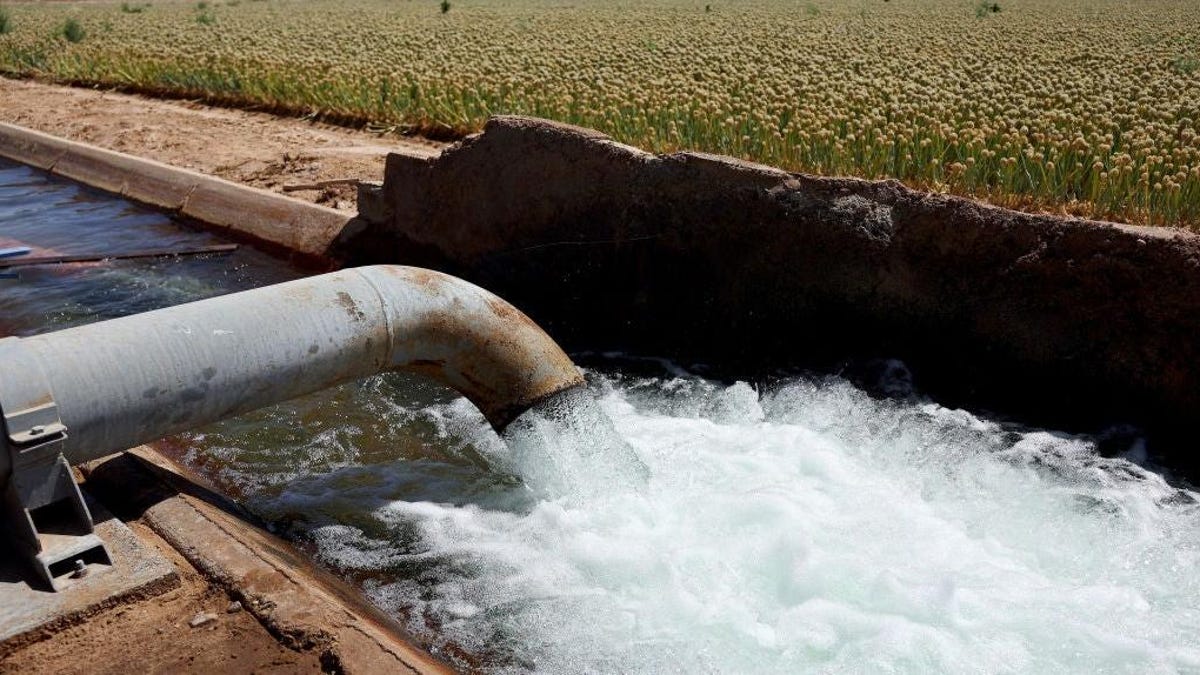
We’ve been sucking the earth dry, and it’s starting to change how our planet works. A study published this month in the journal Geophysical Research Letters, explains that we’ve extracted so much damn water out of the ground, it has changed the planet’s tilt and has contributed to sea level rise.
Groundwater is a pretty important source of water throughout the world, especially in the U.S. It’s used to provide drinking water and it’s a backup source of water when there’s drought. But there is such a thing as taking too much out of the ground. “Earth’s pole has drifted toward 64.16°E at a speed of 4.36 cm/yr during 1993–2010 due to groundwater depletion and resulting sea level rise,” researchers wrote in the study. That’s a tilt of about 1.7 inches towards the east per year, or more than 28 inches (70 centimeters) in less than two decades.
Advertisement
But why does this happen? The planet’s rotational pole, which is the point that the Earth rotates around, moves via a process that is called polar motion. This describes the axis the world spins on relative to the Earth’s crust. And the water distributed across the planet affects how the world spins, researchers explained in the study. So if groundwater is taken out of the Earth’s crust and moved elsewhere, it’s adding to the water in the ocean, and it’s shifting how mass is moved around. This makes a difference because there is a lot of water underground around the world. There is actually over a thousand times more water underground than there is in all the world’s rivers and lakes, according to the U.S. Geological Survey.
“Earth’s rotational pole actually changes a lot,” Ki-Weon Seo, a geophysicist at Seoul National University and study coauthor, said in a statement. “Our study shows that among climate-related causes, the redistribution of groundwater actually has the largest impact on the drift of the rotational pole.”
Advertisement
Advertisement
But water extraction hasn’t just changed how the world tilts. Researchers used groundwater data and climate models to conclude that we’ve pumped enough groundwater to contribute to 6.24 millimeters (.24 inches) of sea level rise from 1993 to 2010. These findings are alarming because the sea level has increased at a rate of 3.4 millimeters (.13 inches) a year since 1993, according to NASA. These numbers may seem small, but sea level rise that is already fueled by climate change has major implications for the world. Recent research shows how sea level rise is washing away the breeding ground for endangered species of turtles. Major cities on the coast will be swallowed up by sea level rise, potentially displacing hundreds of millions of people in a few decades.
Communities throughout the U.S., especially in the South, are struggling with sea level rise. Louisiana has a huge erosion problem. Data from the U.S. Geological Survey shows that the state lost an estimated 2,000 square miles of land between 1932 and 2016. That’s larger than the state of Rhode Island. Sea level rise has been a long-time growing concern for Florida’s coast, but flooding and king tides are projected to happen more often in the sunshine state. The increased flooding over time has also messed with the real estate market, and people in flood zones could see their property values plunge.
Some local governments in the U.S. have addressed the over-extraction of groundwater recently. Arizona officials recently paused some housing development expansion over groundwater supply. Construction can only continue for new builds in parts of Phoenix if developers are able to prove that there is a steady source of water for those future households. However, developers cannot rely on groundwater as a water source to obtain a certificate that would allow them to continue building, AZFamily reported. Officials have decided on this because groundwater is a finite resource, and if communities continue to overdraw water, it could take up to thousands of years to replenish that source of water.
Want more climate and environment stories? Check out Earther’s guides to decarbonizing your home, divesting from fossil fuels, packing a disaster go bag, and overcoming climate dread. And don’t miss our coverage of the latest IPCC climate report, the future of carbon dioxide removal, and the un-greenwashed facts on bioplastics and plastic recycling.
Services Marketplace – Listings, Bookings & Reviews